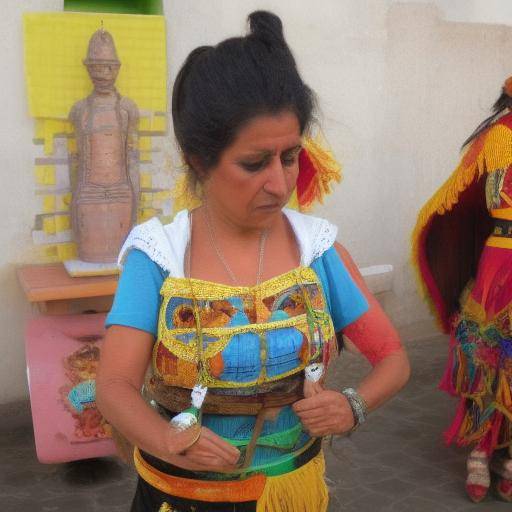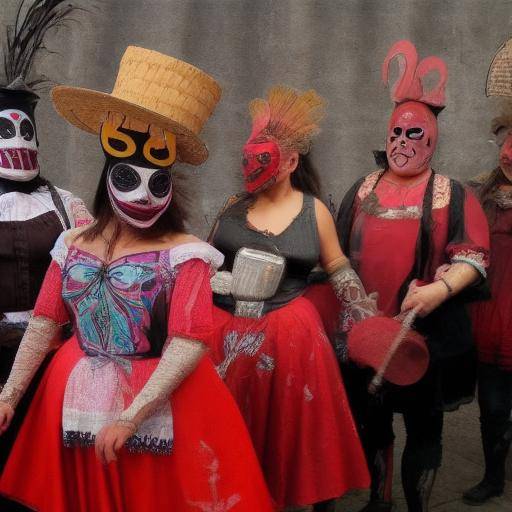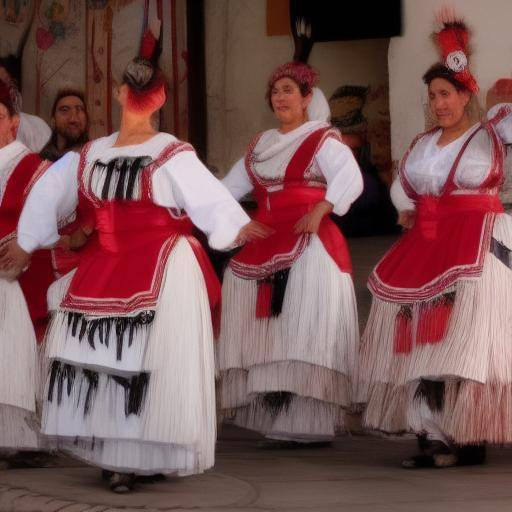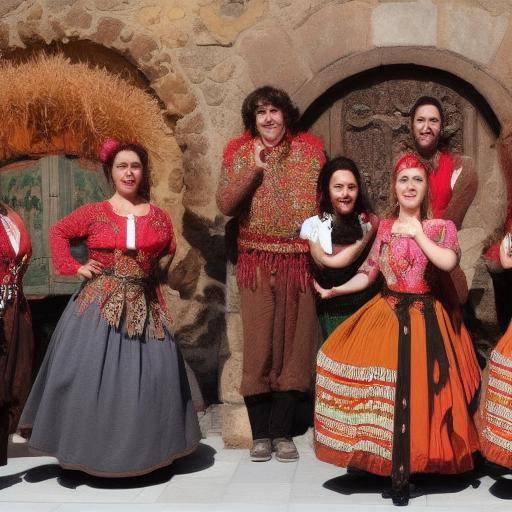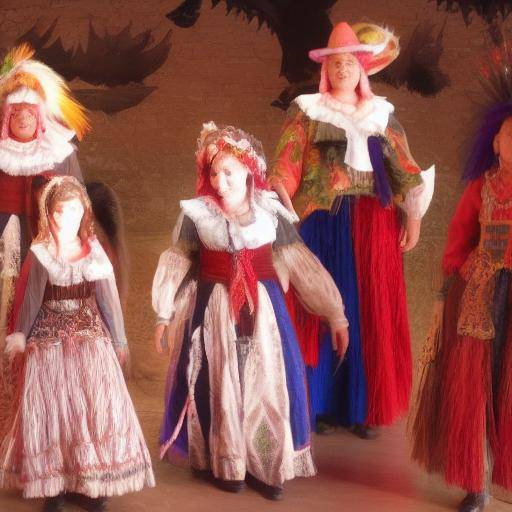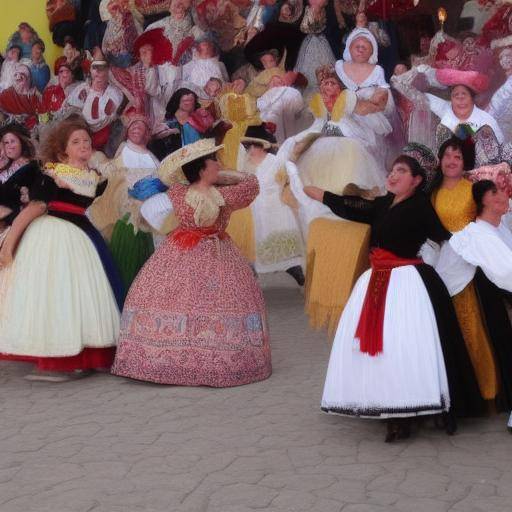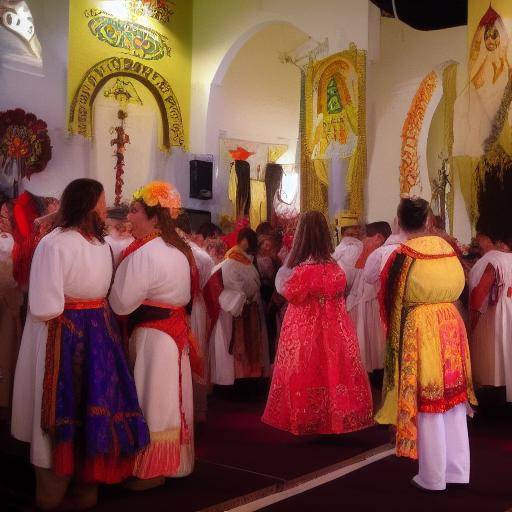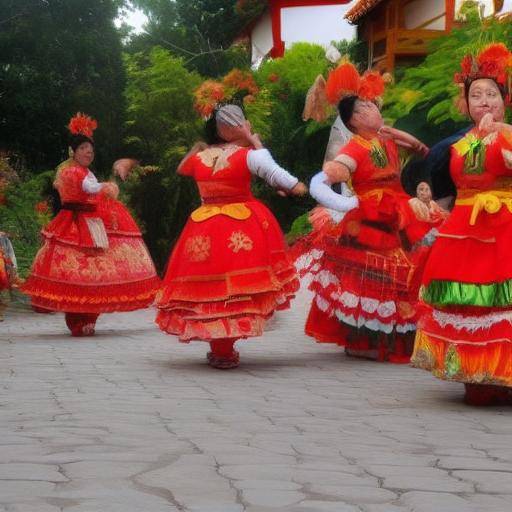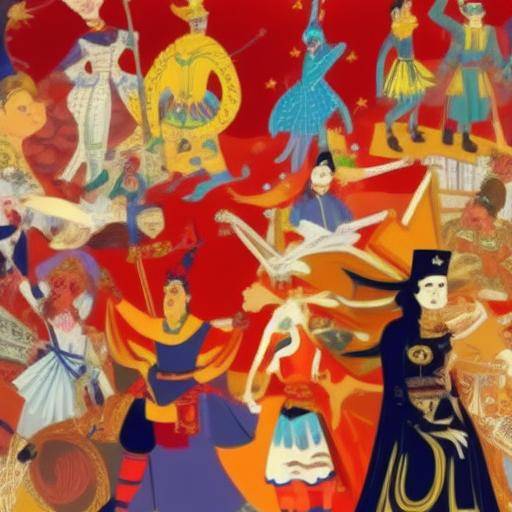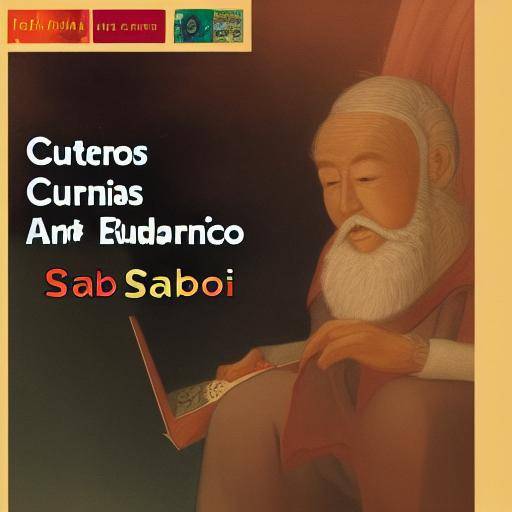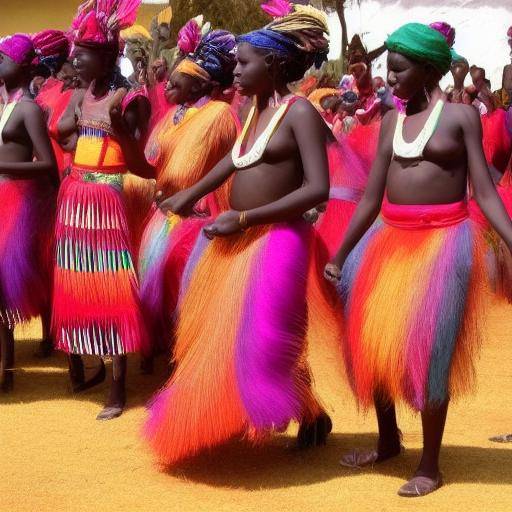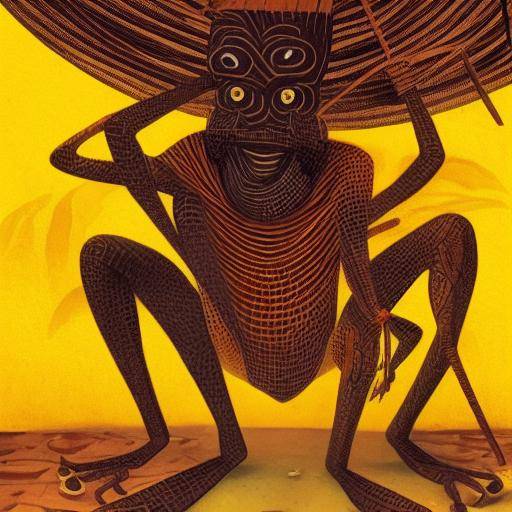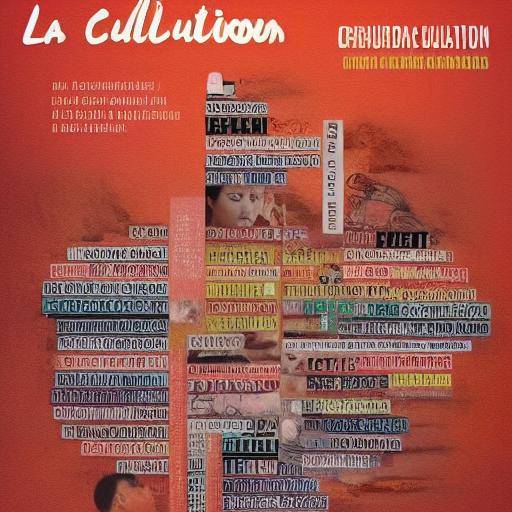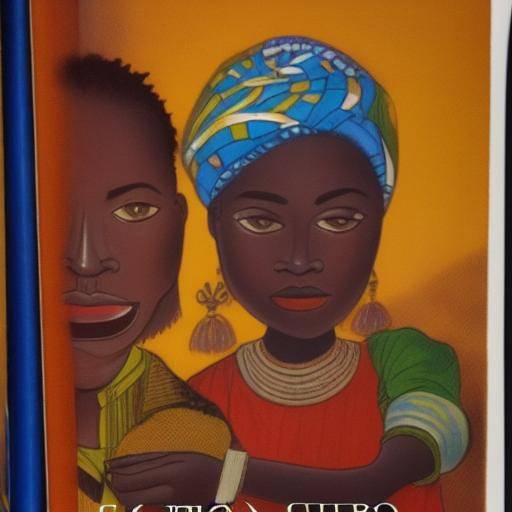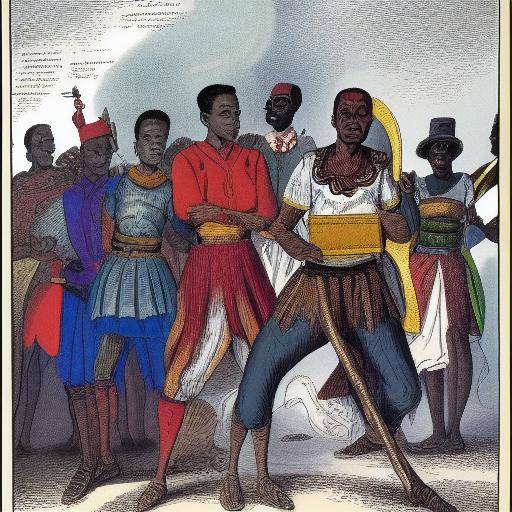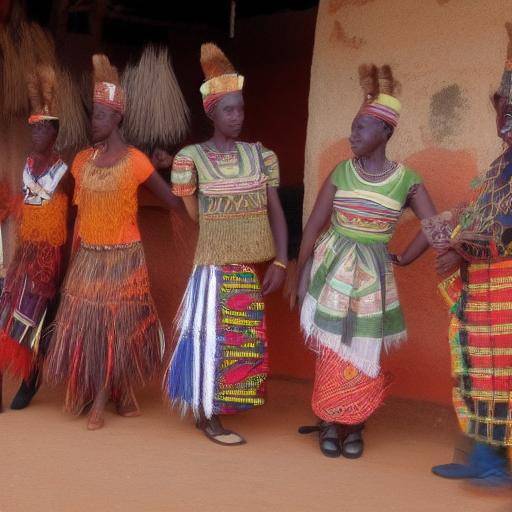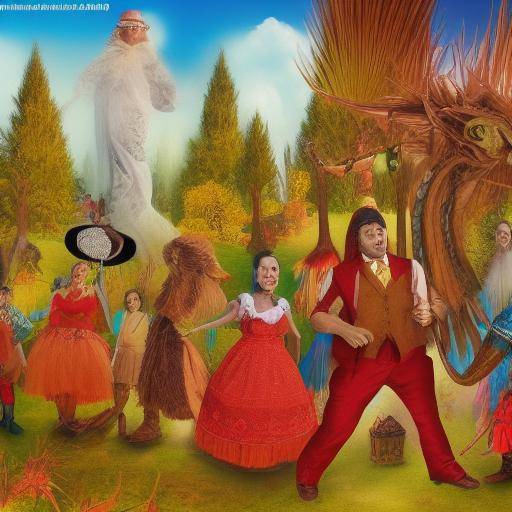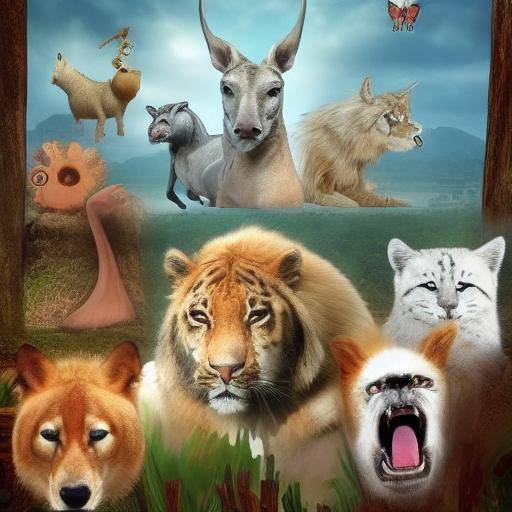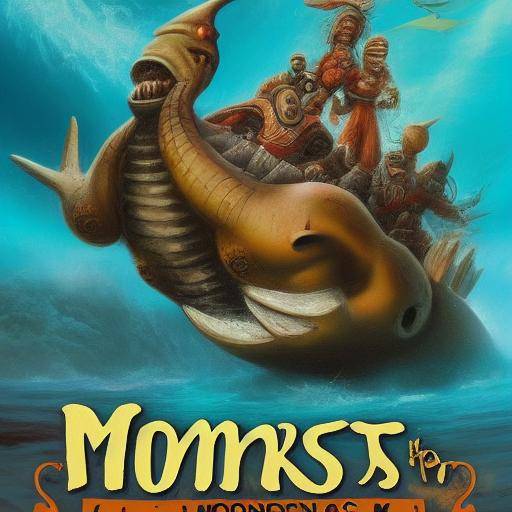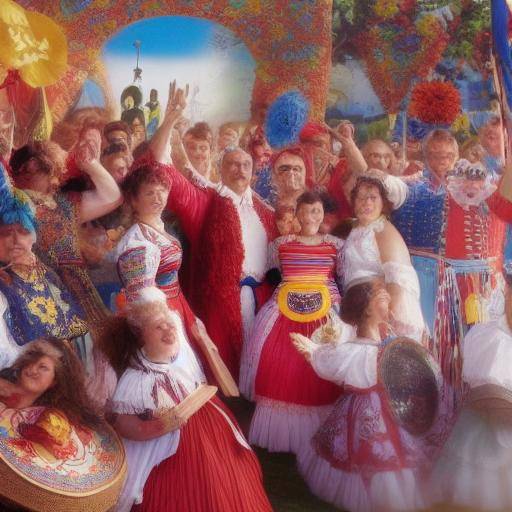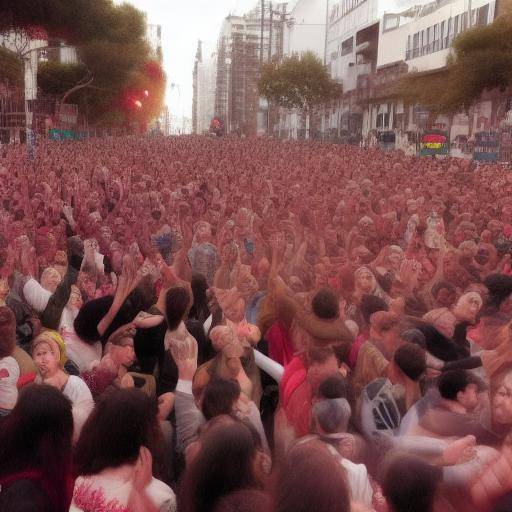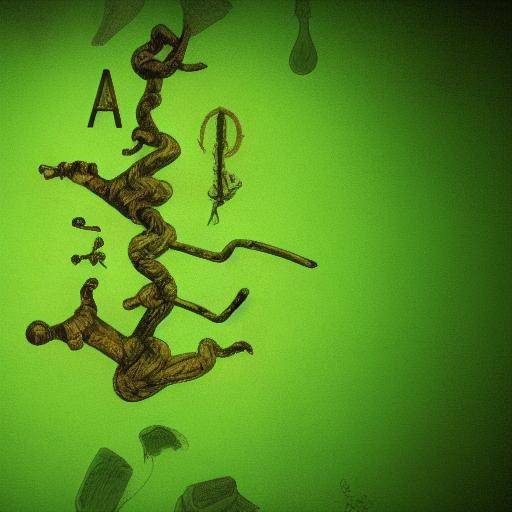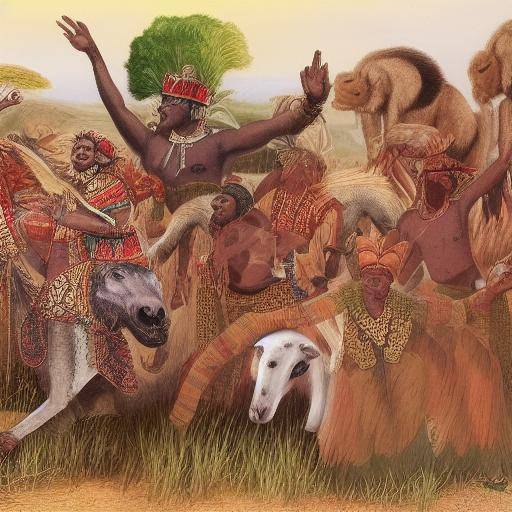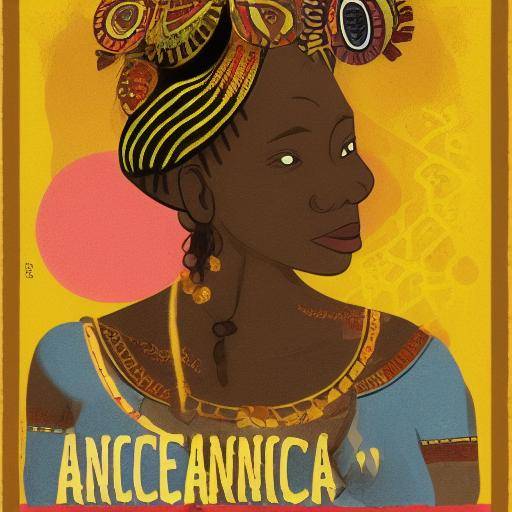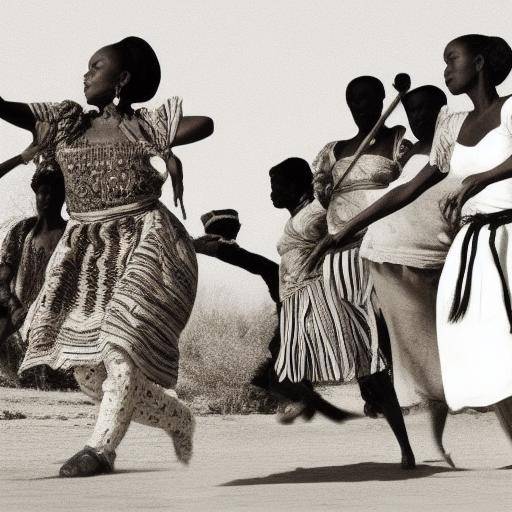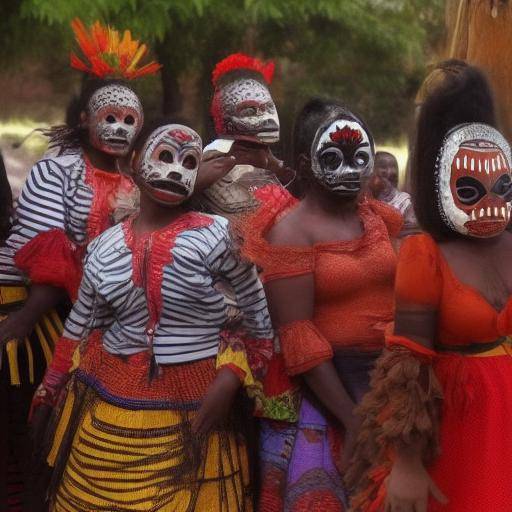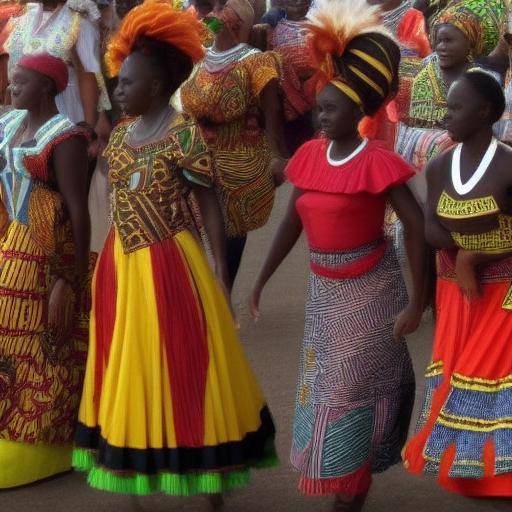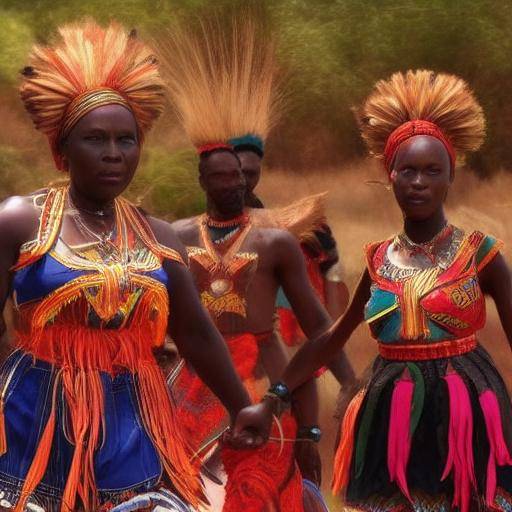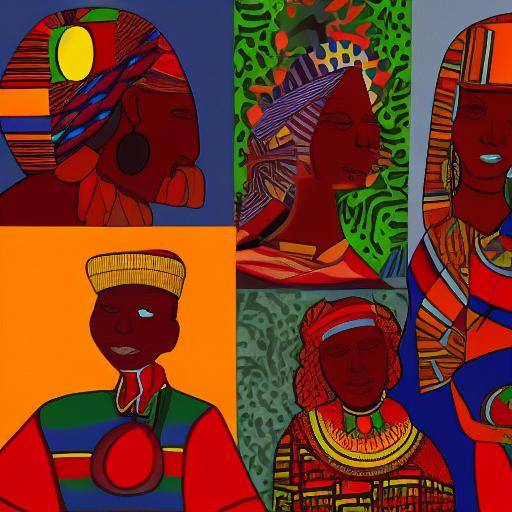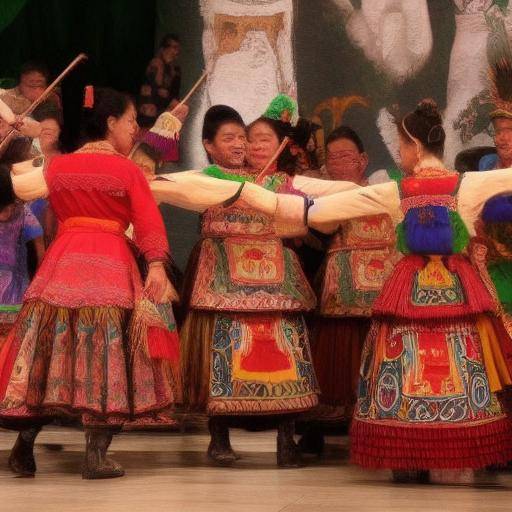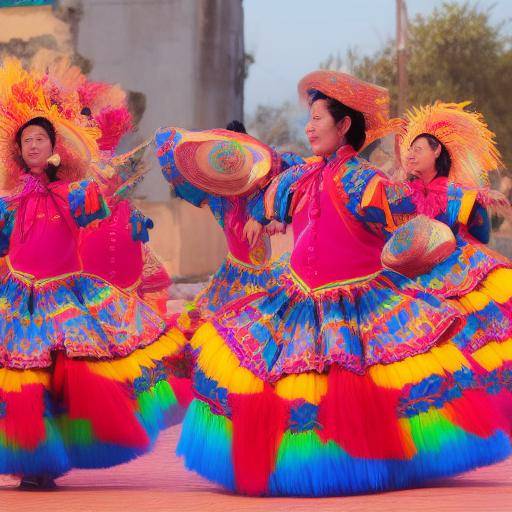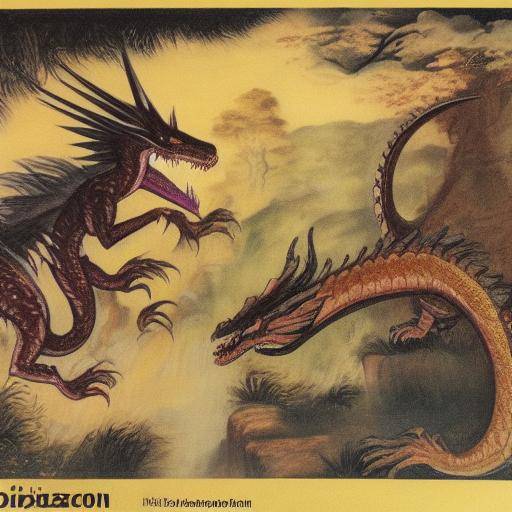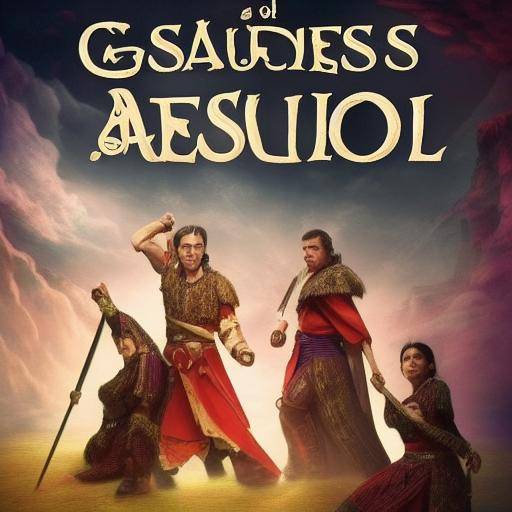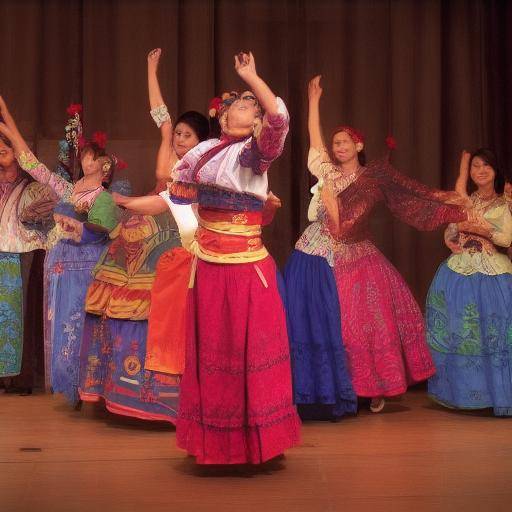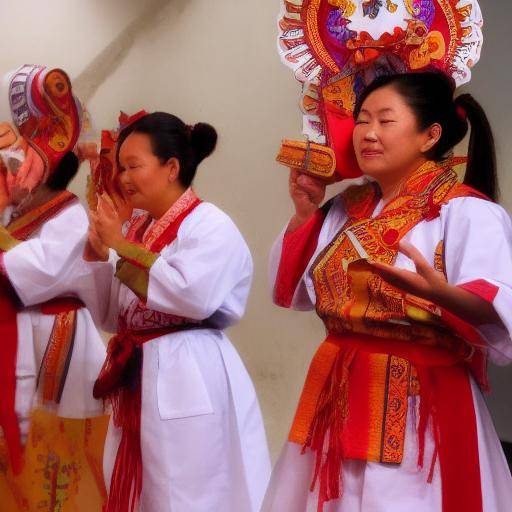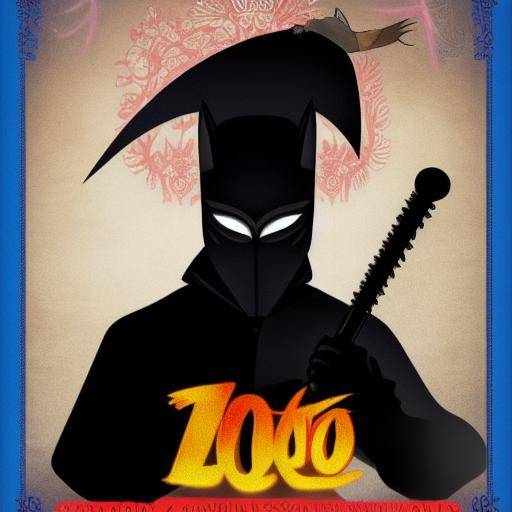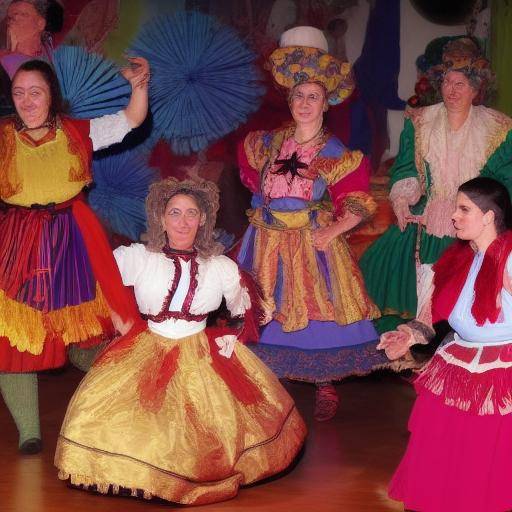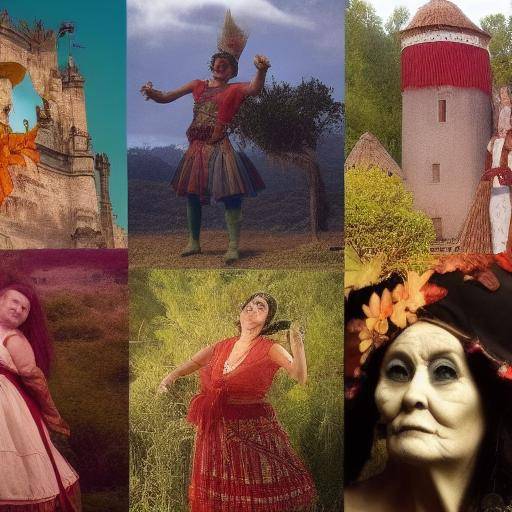
Introduction
The European folklore is full of fascinating legends that have endured over the centuries, transmitting from generation to generation. These captivating stories offer a look at the rich culture, traditions and mythology of Europe. In this article, we will explore some of the most emblematic legends of European folklore, from the mysterious fairy tales to the haunting ghost stories. We will discover the history behind these legends, their impact on European culture and its relevance today. Get ready to get into a world of myths, magic and mystery!
History and Background
European folklore dates back to the dawns of civilization, rooted in the beliefs, customs and traditions of the diverse cultures that have populated the continent over millennia. From ancient Celtic legends to medieval tales, European folklore has evolved through the fusion of cultural and religious influences. This vast treasure of stories has left an indelible mark on European identity, shaping its art, literature and worldview.
In medieval Europe, the legends of King Arthur and the Knights of the Round Table captivated the imagination of the people, inspiring numerous literary and artistic works. On the other hand, the popular narratives of witches, elves and supernatural beings reflected the superstitious worldview of that time. As European society was transformed, these legends were adapted, nourishing the cultural acquis from generation to generation.
The legends of European folklore not only entertain, but also provide a window to the concerns, hopes and fears of the communities that created them. These traditional stories are not only part of European heritage, but also continue to influence contemporary literature, cinema and popular culture.
In depth
European folklore holds a vast world of intriguing stories that reflect the diversity of the region. From the Nordic myth of Beowulf to the narratives of the Grimm brothers, these legends have left an indelible mark on the collective imagination. Through these stories, the European communities have transmitted their wisdom, values and beliefs over the centuries.
European folklore has not only influenced literature and art, but has also played a crucial role in building cultural identities. These stories have served as a vehicle for knowledge transmission, helping to preserve collective memory and strengthen community ties. In addition, European folklore has inspired countless adaptations, reinterpretations and reinventions, demonstrating their validity over time.
Legends of European folklore cover a wide range of themes, from legendary heroes to fantastic creatures. These stories have captured the essence of human condition, exploring universal themes such as love, courage, betrayal and redemption. In turn, these narratives have transcended borders, serving as a bridge between different cultures and generations.
Detail
In exploring European folklore, it is fascinating to observe how these legends have evolved over time and have transcended geographical and linguistic barriers. From the epic story of Beowulf, which narrates the exploits of the legendary Scandinavian hero, to the moralizing fables of Esopo, European folklore reflects the richness and cultural diversity of the continent.
The legends of European folklore have not only entertained the public, but also served as a vehicle for the transmission of cultural values, norms and knowledge. These stories have fulfilled an educational and formative function, transmitting moral lessons and teaching practical skills to new generations. In addition, European folklore has been an inexhaustible source of inspiration for writers, artists and filmmakers, who have reinterpreted these legends with a contemporary look.
The impact of European folklore extends beyond the cultural sphere, influencing collective imagination and artistic expressions around the world. From fashion to music, European folklore has left an indelible mark on human creativity, demonstrating its ability to transcend borders and eras.
Comparative analysis
The legends of European folklore, folklore itself and the fascinating stories that form part of this cultural acquis share the quality of having endured over time, transcending borders and generations. These narratives convey the essence of human experience, exploring the deepest aspects of human beings and their relationship with the environment.
While European legends reflect the mythology and traditional accounts of the region, folklore encompasses a wider spectrum of cultural expressions, such as customs, dances, music and celebrations. On the other hand, fascinating stories can come from both folklore and other sources, being stories that awaken admiration and awe.
Despite their differences, these elements are intertwined to offer a wide and heterogeneous view of European cultural heritage, enriching the understanding of their history and traditions. This diversity of cultural accounts and expressions has contributed to the wealth of European folklore, consolidating it as an invaluable legacy for present and future generations.
Practical Tips and Recommendations
If you are interested in immersed in the fascinating world of European folklore, here are some practical tips to expand your knowledge and appreciation of these legends:
- It devotes time to explore the collections of popular tales from different European regions, such as the tales of the Grimm brothers, the Icelandic sagas or the arturic legends.
- Immerse yourself in reading classic works of European literature that incorporate elements of folklore, such as "The Lord of the Rings" by J.R.R. Tolkien or Bram Stoker's Dracula.
- Participates in traditional European festivals and celebrations that pay homage to folklore through music, dances and theatrical performances.
Conclusions and FAQs
Conclusions
European folklore is a treasure of fascinating narratives that have enriched the culture of the continent over the centuries. These legends exercise lasting power, captivating and surprising audiences of all ages. Its impact transcends borders, fueling imagination and creativity around the world. By exploring these stories, we enter into a universe of myths, magic and mystery that continues to resonate in contemporaneity.
Frequently asked questions (FAQs)
1. What are some outstanding legends of European folklore?
Some emblematic legends of European folklore include "The Legend of King Arthur and the Knights of the Round Table", "The Myth of Robin Hood", "The Tale of Hansel and Gretel" and "The Story of Dracula".
2. How has European folklore influenced contemporary popular culture?
European folklore has permeated popular culture through cinematic adaptations, literary reinterpretations, works of art and references in music. Both in the narrative of terror, epic fantasy, and in fashion and design, the impact of European folklore is undeniable.
3. What aspects of European folklore remain relevant today?
European folklore is still relevant today because of its ability to transmit universal values, its influence on contemporary creativity and its role in preserving the cultural identity of Europe.
4. Why does European folklore still fascinate audiences of all ages?
The lasting appeal of European folklore lies in its ability to evoke deep emotions, transport readers to imaginary worlds and offer a way of escape to everyday life. Moreover, the richness of the themes addressed in these legends, such as love, courage and magic, resonates in fundamental aspects of human condition, keeping its relevance over time.
5. What are some of the European festivals and celebrations that highlight folklore?
Some of the European festivals and celebrations that honor folklore include the Edinburgh Festival in Scotland, the Carnival of Venice in Italy, the Fiesta de San Juan in Spain and the Midsummer Festival in Sweden.
6. How can I learn more about European folklore and its legends?
To get into the world of European folklore, we recommend exploring libraries specializing in folk literature, attending conferences and seminars on mythology and folklore, and participating in cultural activities that celebrate European traditions.
In short, European folklore is an invaluable legacy that has shaped the cultural identity of the continent and continues to captivate audiences around the world. His legends, full of magic, mystery and wisdom, go through time to delight and enrich present and future generations. By exploring these stories, we immerse ourselves in a universe of imagination and meaning that continues to inspire new explorations. Discover the eternal charm of European folklore and be captivated by its fascinating legends!
We hope that this article has awakened your interest and curiosity for the wonderful world of European folklore. If you have any additional questions or would like to share your own experiences with these legends, don't hesitate to leave your comments!


